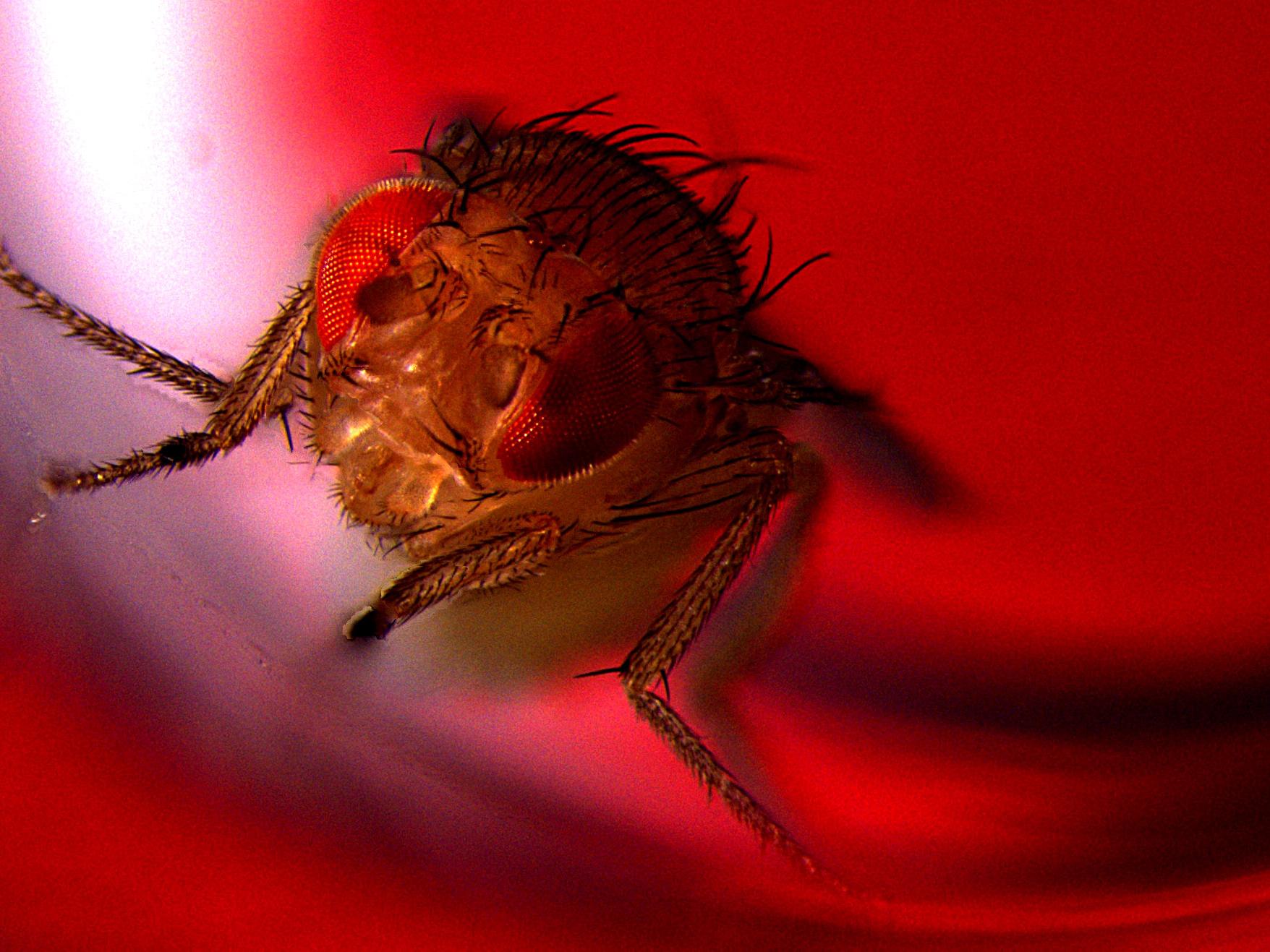Flies enjoy having sex and will resort to alcohol if they can’t get it, scientists find
Unusual experiment could provide insights into addiction to rewarding substances

Sex – specifically ejaculation – is an enjoyable experience for male fruit flies, scientists have found, while demonstrating that the sex starved among them are more likely to consume alcohol in order to gain an alternative reward.
The unusual research not only demonstrated that enjoyment of ejaculation appears to be a fairly universal phenomenon, it could also be used to understand the biology of addiction.
"We wanted to know which part of the mating process entails the rewarding value for flies," said Dr Galit Shohat-Ophir of Bar-Ilan University in Israel, who co-authored the study.
"The actions that males perform during courtship? A female's pheromones? The last step of mating which is sperm and seminal fluid release?"
To determine what a fly does and does not find pleasurable, the scientists made use of so-called “optogenetic” tools.
This allows researchers to genetically engineer creatures with brain cells that can be essentially switched on and off using light.
Dr Shohat-Ophir and her colleagues created fruit flies in which brain cells producing a chemical called corazonin (CRZ) could be switched on when the flies encountered a red light.
Previous work had already suggested that CRZ is the substance that triggers fly ejaculation.
The researchers then placed their modified flies into an arena, one half of which was bathed in red light. Tracking of the flies’ movements revealed males preferred spending time in the red light, suggesting a drive to seek out ejaculation.
In doing this, the scientists removed the act of ejaculation from the act of mating and found that it was the ejaculation itself that the males flies enjoyed.
To confirm this, the flies were then trained to associate red light-induced ejaculation with a particular odour. They were then re-tested to see if they preferred the odour they associated with ejaculation. Once again they did.
The next part of the experiment involved testing how ejaculation affected the flies’ desire for alcohol.
“Successful mating is naturally rewarding to male flies and increases the levels of a small peptide in the brain called neuropeptide F," said Dr Shohat-Ophir.
Those flies that had experienced a few days of ejaculation and therefore had brains full of neuropeptide, were less likely to opt for alcohol when presented with a choice between alcoholic and non-alcoholic meals.
Conversely, flies that had not been ejaculating for days opted for the alcohol.
"Male flies that are sexually deprived have increased motivation to consume alcohol as an alternative reward,” noted Dr Shohat-Ophir.
The research was published in the journal Current Biology.
Dr Shohat-Ophir explained that this kind of work can be used to understand the basic biology underpinning very human behaviours such as substance addiction.
"The principles by which the brain processes reward are extremely conserved in all animals; this is a really basic every day machinery that helps animals survive," she said. "Drugs of abuse use the same systems in the brain that are used to process natural rewards.
“This allows us to use simple model organisms to study aspects of drug addiction, including the interplay between natural and drug rewards and the connection between experience and the mechanisms that underlie the risk to develop drug addiction."
In this case, the results indicate that the sexual state of an animal affects how much they feel the need to consume rewarding substances like alcohol.
The researchers speculated that an individual’s vulnerability to addiction is therefore influenced by the amount of “rewards” they have received from other sources.
Subscribe to Independent Premium to bookmark this article
Want to bookmark your favourite articles and stories to read or reference later? Start your Independent Premium subscription today.

Join our commenting forum
Join thought-provoking conversations, follow other Independent readers and see their replies